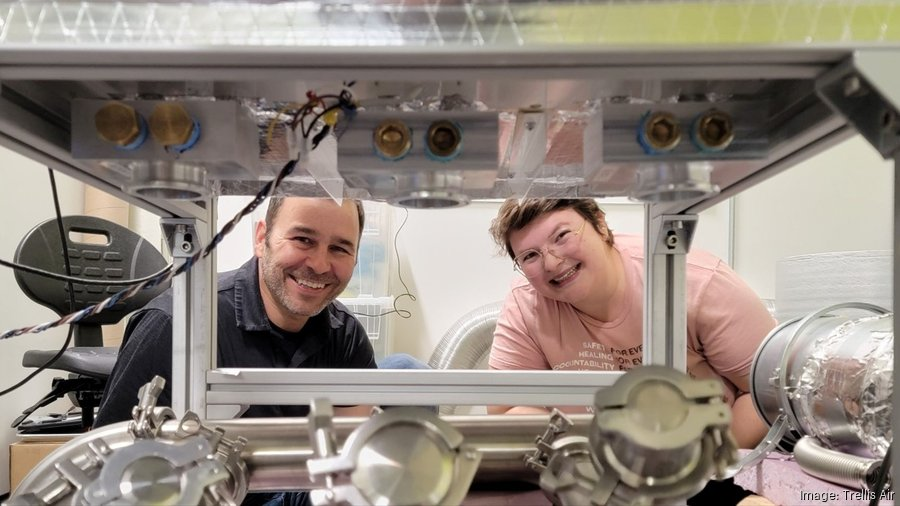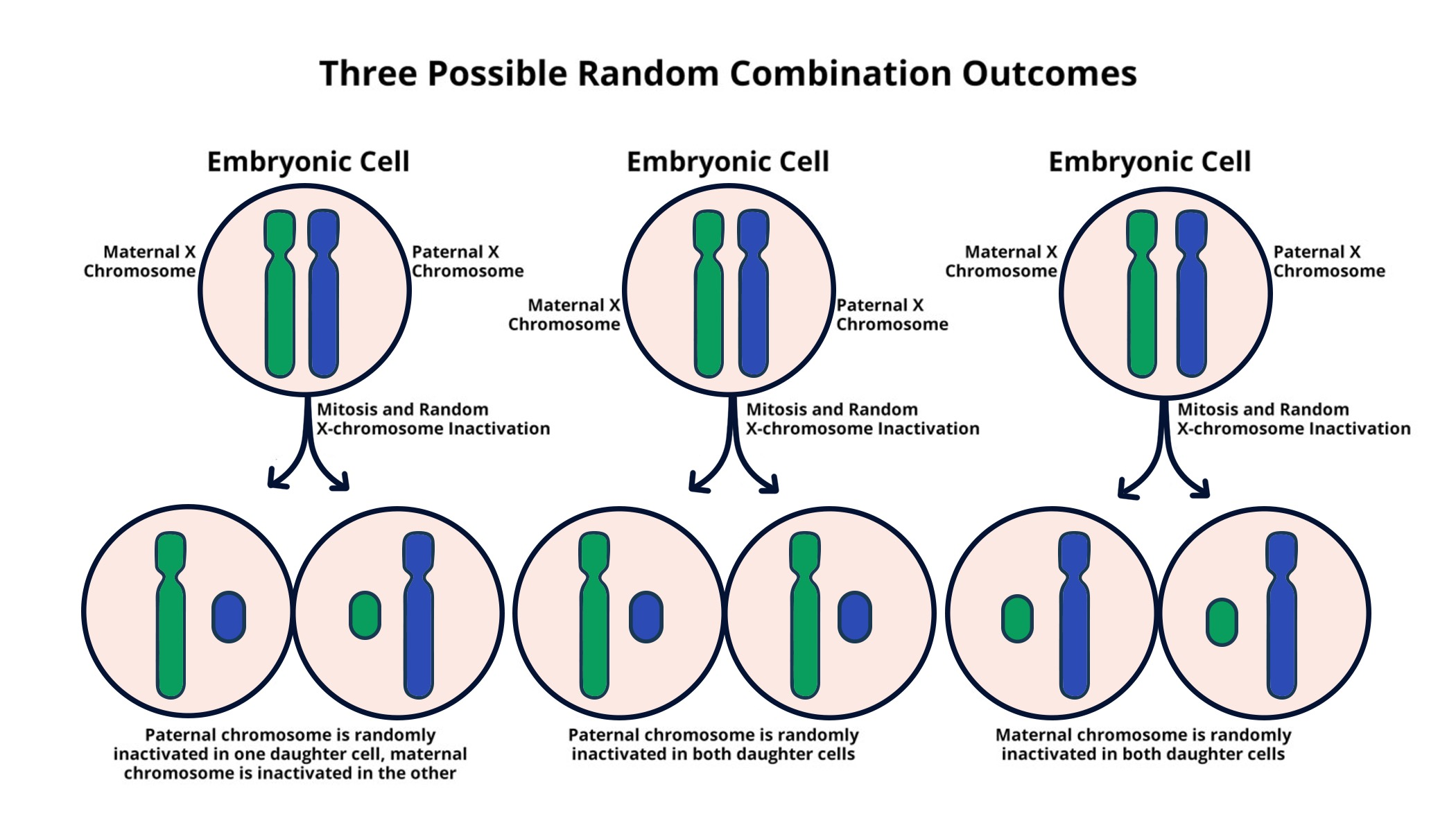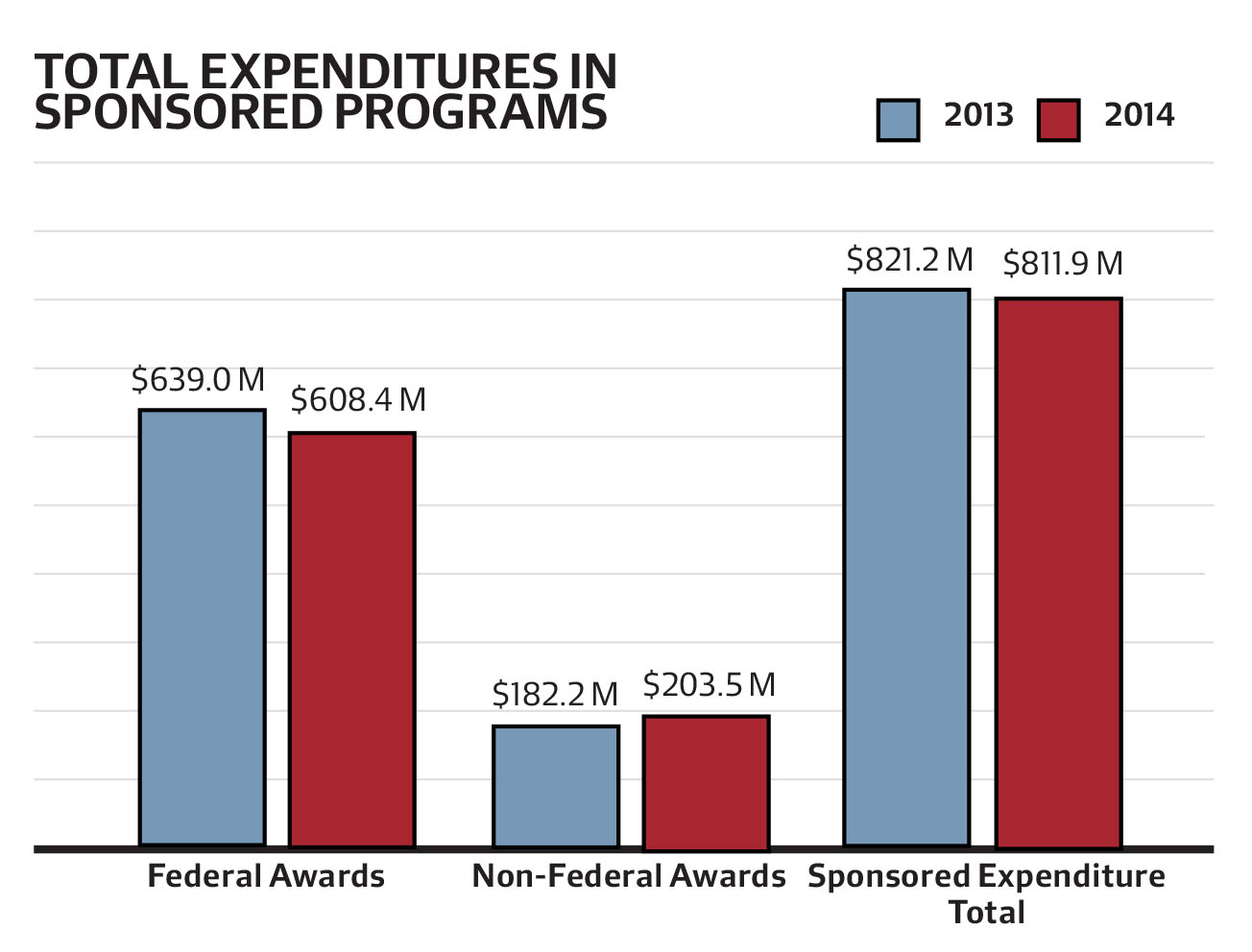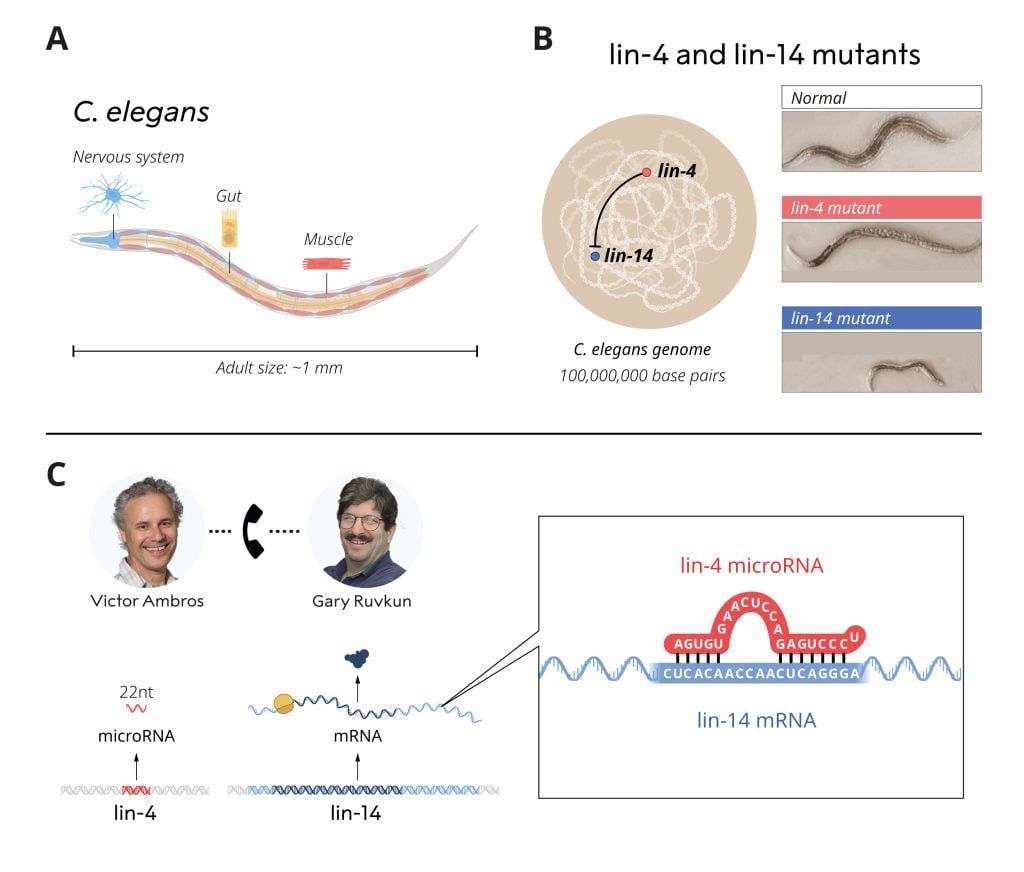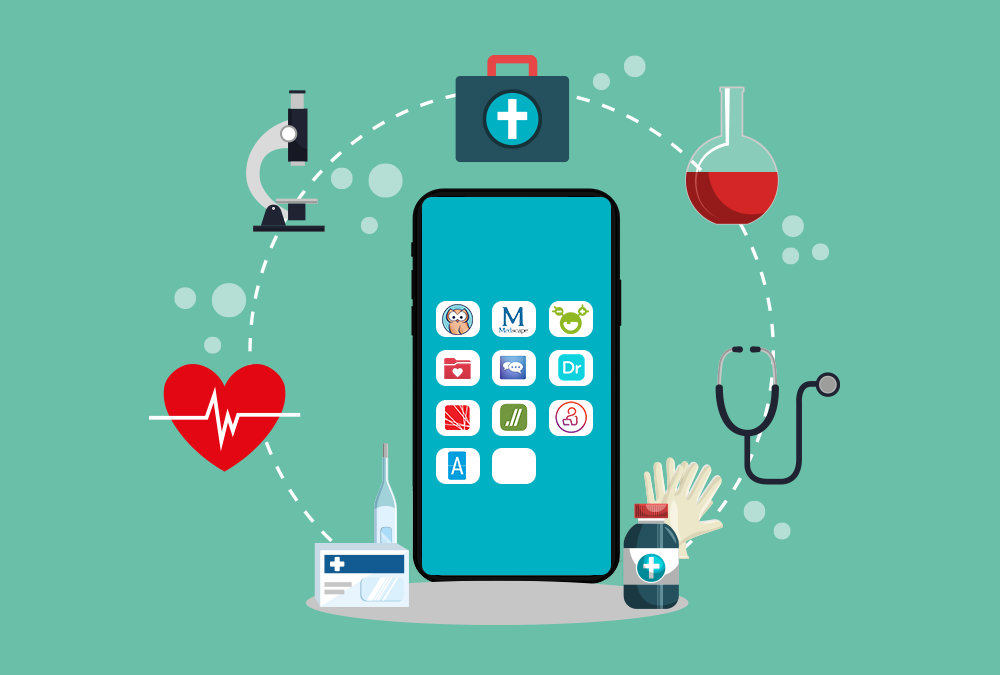
Healthcare Apps: Revolutionizing Patient Support and Care
Healthcare apps are revolutionizing the way we approach personal wellness by offering tailored solutions that meet individual needs. As technology integrates more deeply into our lives, innovations such as AI health apps are paving the way for personalized healthcare experiences that enhance patient engagement and adherence. For instance, these applications can provide cancer patient support, guiding them through complex treatment regimens while simultaneously managing side effects. Utilizing reinforcement learning in healthcare, these apps continuously adapt to user behavior, ensuring more relevant and timely interventions. With the rise of digital health coaches, patients can now access a unique blend of support that empowers them to take charge of their health journey.
Digital health applications, commonly referred to as wellness apps, are emerging as vital tools for enhancing patient care and promoting healthy lifestyles. By integrating advanced technologies, these solutions offer customized strategies tailored to individual circumstances, particularly in areas like chronic illness management and medication adherence. For instance, innovative tools designed for cancer survivors not only provide medication reminders but also deliver emotional support and community connections. Through adaptive technology, users are able to receive assistance precisely when they need it, making these apps essential companions in the pursuit of better health outcomes. As we delve into this topic, the potential of these applications to transform healthcare into a deeply personal experience will become increasingly evident.
The Rise of Healthcare Apps in Personalized Medicine
Healthcare apps have transformed how patients engage with their health, particularly in the realm of personalized medicine. These digital tools utilize algorithms and data analytics to tailor health interventions according to individual patient needs. By leveraging user data, such as medication adherence patterns or behavioral outcomes, healthcare apps can provide tailored notifications and reminders that significantly improve health management. As the healthcare landscape evolves, the importance of personalized healthcare continues to grow, allowing patients to receive support that is relevant and timely.
One notable innovation driving this transformation is the use of artificial intelligence in healthcare apps. AI health apps harness machine learning and reinforcement learning techniques to adapt to user behaviors in real time. For instance, if a cancer patient begins neglecting their medication schedule, the app can analyze when and how to intervene most effectively, optimizing support for the patient’s unique circumstances. These developments not only enhance adherence rates but also empower users to take control of their health journeys.
Leveraging AI for Cancer Patient Support
Cancer patients often face numerous challenges throughout their treatment process, including adherence to complex medication regimens. Advanced healthcare apps are now providing much-needed support in this area. By employing AI and reinforcement learning technologies, these applications can offer personalized interventions that align with the patients’ fluctuating needs during recovery. This dynamic approach ensures that patients receive motivation and reminders at critical times which are tailored for maximum effectiveness.
Moreover, the integration of social support features in these apps can create a more encouraging environment for cancer patients. By involving caregivers or even family members in the app’s functionality, users feel less isolated and more accountable. For instance, the word-guessing game developed by Murphy’s team encourages interaction between patients and their caregivers, fostering a supportive atmosphere essential for recovery. This kind of innovative design highlights the potential for healthcare apps to not only enhance adherence but also improve overall patient wellbeing.
The Role of Digital Health Coaches
Digital health coaches represent a pioneering step in the evolution of personalized healthcare. Unlike traditional health coaching, these digital alternatives provide real-time, adaptive support aimed at helping users achieve their health goals without the constraints of a typical coaching relationship. They are designed to be accessible and informative, which significantly decreases barriers to receiving personalized health support.
Moreover, digital health coaches utilize sophisticated algorithms that continuously adapt to user feedback and behavior. By learning from interactions, these apps can deliver motivational nudges tailored specifically to each user’s context and circumstances. This approach is particularly beneficial for chronic conditions where consistent monitoring and encouragement can make a substantial difference in outcomes, ensuring users remain engaged with their health management.
Challenges in Healthcare App Development
Developing effective healthcare apps is not without its challenges. One primary concern is ensuring that the algorithms are both relevant and user-friendly. Many existing health apps fail to offer the personalized experience that users need, leading to disengagement and reduced adherence. Researchers, like Susan Murphy, are committed to addressing these issues by integrating feedback mechanisms that allow the app to learn and evolve based on user interactions.
Additionally, privacy and security considerations are paramount when it comes to app development in the healthcare sector. Users must feel confident that their personal data is being handled responsibly and ethically. Innovative approaches in data encryption and user anonymization are essential to maintaining trust and ensuring that healthcare apps can operate effectively without compromising user information.
Incorporating Behavioral Science into Health Apps
The integration of behavioral science into healthcare apps is proving to be a game-changer in enhancing patient engagement. By understanding the psychological underpinnings of habit formation, developers can create apps that not only provide reminders but also encourage lasting behavioral change. For instance, by incorporating elements of gamification, such as rewards for completing tasks, apps can boost motivation and make health management more appealing to users.
Behavioral nudges, strategically embedded within the app, can also prompt users to engage with their health routines in a way that feels seamless and intuitive. By applying principles from behavioral economics, app designers can influence user decisions positively, leading to improved health outcomes. This behavioral integration highlights the potential for healthcare apps to serve as more than mere trackers; they can actively assist in fostering healthier lifestyles.
The Future of Reinforcement Learning in Healthcare
Reinforcement learning is poised to revolutionize healthcare by enabling apps to adapt in real time to user behavior. This technology allows applications to learn from previous interactions and continuously refine their responses, making health interventions more timely and effective. As the industry embraces this trend, we can expect healthcare apps to become increasingly sophisticated, offering customized support that meets the evolving needs of patients.
As the utilization of reinforcement learning expands, we can anticipate improvements in various health domains. From medication adherence in cancer patients to cannabis use reduction among young adults, these innovations promise not only to enhance compliance but also to improve quality of life. By tailoring interventions through advanced learning algorithms, healthcare apps will become invaluable partners in achieving better health outcomes.
The Importance of Collaborative Development in Health Apps
Collaboration among researchers, healthcare providers, and technology developers is essential for creating effective healthcare apps. By working together, these groups can ensure that the app design is rooted in clinical evidence and addresses real patient needs. The involvement of stakeholders across disciplines, such as behavioral scientists and software engineers, allows for a comprehensive approach that enhances the functionality of healthcare apps.
Moreover, collaborative efforts enable faster validation of app efficacy through clinical trials. By partnering with institutions like the University of Michigan and Northwestern University, developers can gather robust data that informs further refinements and improvements. This collective process not only boosts the credibility of the apps but also ensures that they deliver tangible benefits to users in managing their health.
Social Connectivity in Health Management Apps
Promoting social connectivity through health management apps can significantly bolster user motivation and adherence. By integrating features that allow patients to connect with caregivers or supportive communities, apps can harness the power of social networks to encourage positive health behaviors. These interactions can provide users with an additional layer of accountability and support, making it easier to navigate challenging health journeys.
As social connections play a crucial role in mental and emotional well-being, healthcare apps that foster these relationships can enhance overall patient engagement. The unique inclusion of social elements not only aims to strengthen the bond between patients and caregivers but also creates a community-oriented approach to health management. This emphasis on social support can lead to improved adherence rates and better health outcomes.
The Impact of Continuous Learning on Health Applications
Continuous learning is at the core of many successful healthcare applications today. By utilizing data collected from user interactions, these apps can evolve and improve over time. Developers can apply machine learning techniques to assess which interventions yield the best outcomes for particular patient profiles, thus fine-tuning their algorithms for maximum effectiveness.
The emphasis on continuous learning reflects broader trends in healthcare toward personalized, data-driven management. As more patients engage with these dynamically adapting health apps, the wealth of data generated can provide insights into patterns and behaviors that inform future development. This cycle of feedback and improvement ultimately creates a more effective tool for patients seeking personalized healthcare support.
Frequently Asked Questions
What are healthcare apps and how do they support patients?
Healthcare apps are mobile applications designed to assist patients in managing their health conditions through features such as medication reminders, progress tracking, and personalized health coaching. These apps utilize advanced technologies, including reinforcement learning and AI, to provide tailored support, making it easier for users to adhere to their treatment plans.
How do personalized healthcare apps improve patient outcomes?
Personalized healthcare apps improve patient outcomes by using algorithms to adapt to individual needs, preferences, and behaviors in real-time. This ongoing customization ensures that patients receive timely interventions and reminders, ultimately enhancing medication adherence and overall health management.
What role do AI health apps play in cancer patient support?
AI health apps play a crucial role in cancer patient support by providing personalized interventions, real-time feedback, and emotional support. These apps can help patients manage their treatment regimens, cope with side effects, and connect with caregivers, leading to improved adherence and better quality of life during recovery.
How is reinforcement learning applied in healthcare apps for better patient engagement?
Reinforcement learning in healthcare apps allows the software to learn from user interactions over time, customizing prompts and interventions based on what has been effective in the past. This adaptive approach enhances patient engagement by delivering relevant and timely support tailored to individual treatment needs.
Can you explain how digital health coaches help individuals manage chronic conditions?
Digital health coaches help individuals manage chronic conditions by providing tailored advice, motivational prompts, and reminders that promote adherence to treatment plans. These AI-driven solutions adapt to user inputs, ensuring that patients receive the right support at the right time, which is especially beneficial for those with complex health issues.
What advancements have been made in healthcare apps for managing medication adherence?
Recent advancements in healthcare apps for managing medication adherence include the use of reinforcement learning algorithms that enable apps to offer customized reminders and track medication schedules. These innovations help reduce missed doses and improve overall management of treatment plans, particularly for chronic patients.
What features should one look for in a healthcare app for chronic illness management?
When choosing a healthcare app for chronic illness management, look for features such as personalized medication reminders, progress tracking, integration with healthcare providers, user-friendly interfaces, and secure data management. Additionally, apps that utilize AI for real-time insights and reinforcement learning for customization can provide significant advantages.
| Aspect | Details |
|---|---|
| Target Audience | Cancer patients undergoing treatments like stem cell transplants, cannabis users, and individuals with dental health needs. |
| Technology | Utilizes algorithms based on reinforcement learning for real-time personalization and support. |
| Key Features | Just-in-time adaptive intervention, customizable notifications, social support features, and interactive games. |
| Goals | Improve medication adherence, enhance patient-caregiver relationships, and provide adaptive support based on individual needs. |
| Current Projects | ADAPTS HCT for stem cell transplant patients and MiWaves for cannabis reduction; Oralytics for oral hygiene. |
Summary
Healthcare apps are revolutionizing the way patients manage their health by providing tailored support directly to their phones. As technology develops, innovative applications designed for cancer patients and other specific health needs leverage advanced algorithms to offer personalized assistance. This approach not only encourages medication adherence but also fosters better relationships between patients and their caregivers, making healthcare management more effective and accessible.

